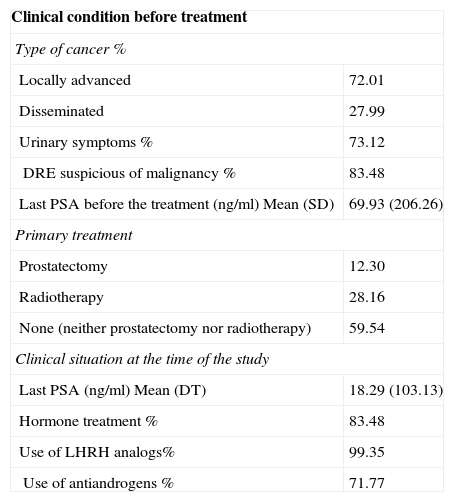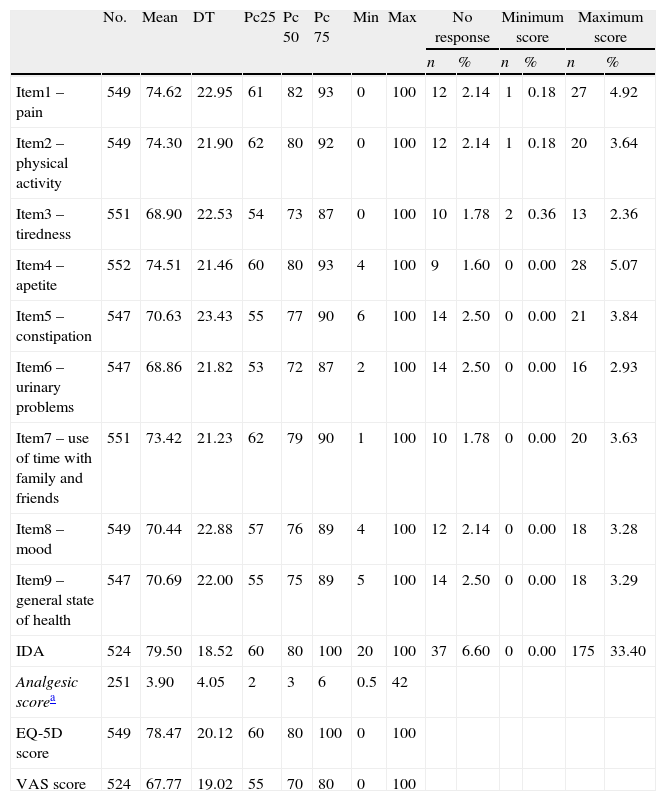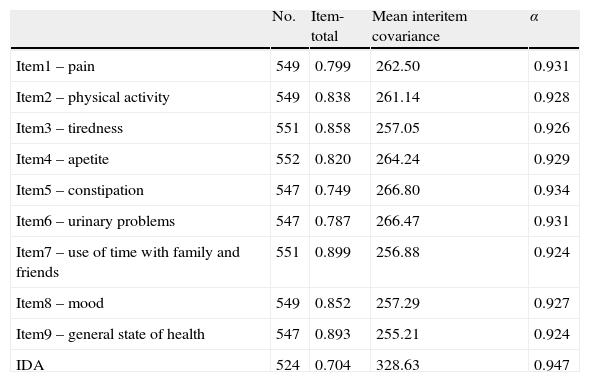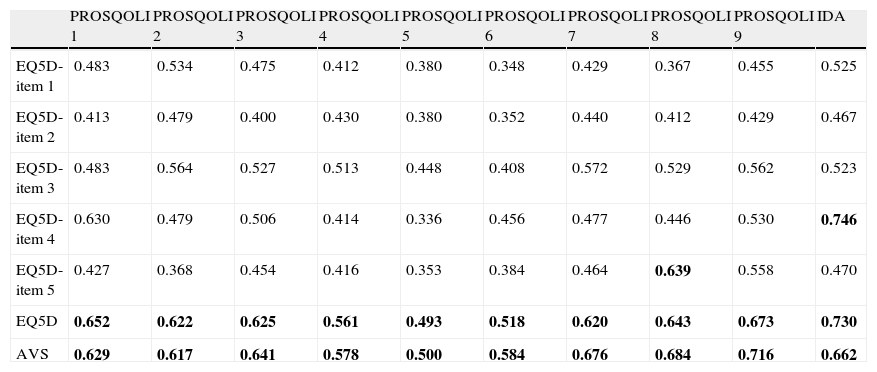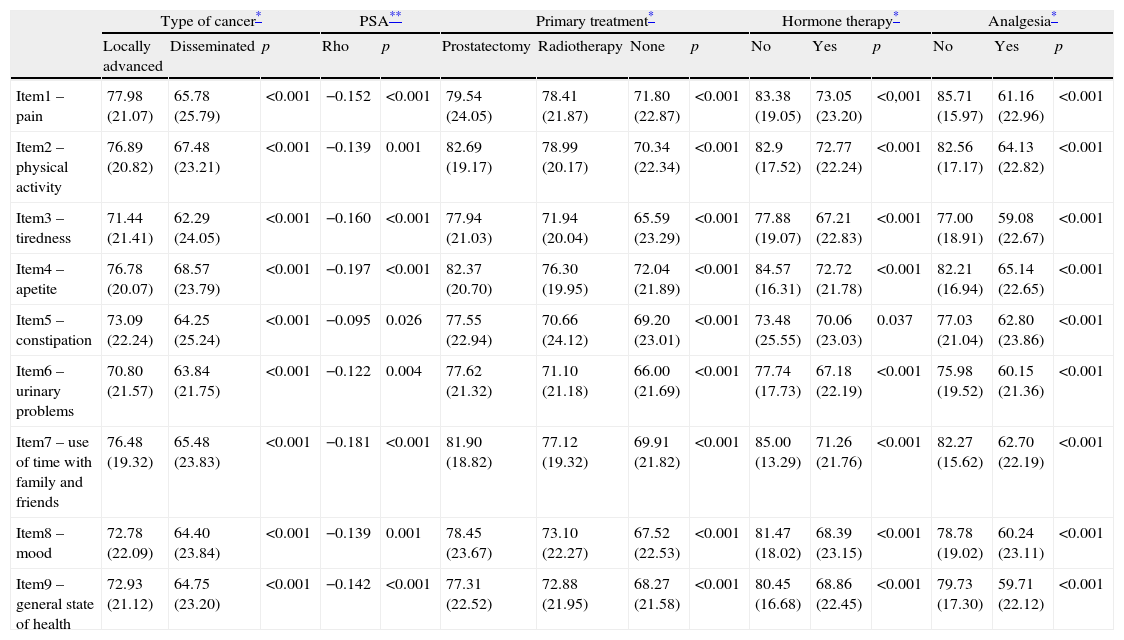Validation of the PROSQOLI questionnaire adapted to Spanish, pursing an instrument to evaluate, in the common clinical practice, the quality of life in patients with locally advanced or disseminated prostate cancer in our country.
Material and MethodsA cross-sectional prospective study was designed in 750 patients (150 centers) with disseminated or locally advanced prostate cancer (TNM criterion) who came to the scheduled check-up. Socio-demographic and clinical data of the participants were collected. The subjects filled out the PROSQOLI and EQ-5D questionnaires. The analysis included 561 cases that met the selection criteria. The psychometric characteristics (feasibility, validity and reliability) of the adapted PROSQOLI questionnaire were studied.
ResultsMean age was 73.63 (7.59) years. A total of 72.01% of the participants had locally advanced disease. In 28.16%, the primary treatment was radiotherapy, in 12.30% it was prostatectomy. A total of 83.48% received hormone treatment. The mean for each scale of the PROSQOLI questionnaire varied from 68.86 to 74.51. The percentage of no response was less than 3% for each scale. The percentage of subjects with minimum score in any scale was negligible, and the maximum score did not surpass 5%. Mean time to fill out the questionnaire was 109.42 (101.00) seconds. Cronbach's α coefficient was 0.937 and the total item correlation was superior to 0.7 for all the items. Correlations with the EQ-5D questionnaire were moderate. Scores on the questionnaire were associated to all the parameters studied related to the disease.
ConclusionsThe adapted questionnaire has adequate psychometric properties for its use in research and in the clinical practice.
Validación del cuestionario PROSQOLI adaptado al castellano, persiguiendo la obtención de un instrumento para evaluar, en la práctica clínica habitual, la calidad de vida en pacientes con cáncer de próstata localmente avanzado o diseminado en nuestro país.
Material y MétodosSe diseñó un estudio transversal prospectivo en 750 pacientes (150 centros) con cáncer de próstata diseminado o localmente avanzado (criterio TNM) que acudían a revisión programada. Se recogieron datos socio-demográficos y clínicos de los participantes. Éstos cumplimentaron los cuestionarios PROSQOLI y EQ-5D. El análisis incluyó 561 casos que cumplieron criterios de selección. Se estudiaron las características psicométricas (factibilidad, validez y fiabilidad) del cuestionario PROSQOLI adaptado.
ResultadosLa edad media fue de 73,63 (7,59) años. El 72,01% de los participantes sufría enfermedad localmente avanzada; en el 28,16% el tratamiento primario fue radioterapia y en el 12,30% prostatectomía. El 83,48% recibía tratamiento hormonal. La media para cada escala del cuestionario PROSQOLI varió entre 68,86 y 74,51. El porcentaje de no respuesta fue inferior al 3% para cada escala. El porcentaje de sujetos con puntuación mínima en alguna escala fue despreciable, y el de puntuación máxima no sobrepasó el 5%. El tiempo medio de cumplimentación fue 109,42 (101,00) segundos. El coeficiente α-Cronbach fue 0,937 y la correlación ítem-total superior a 0,7 para todos los ítems. Las correlaciones con el cuestionario EQ-5D fueron moderadas. Las puntuaciones en el cuestionario se asociaron con todos los parámetros estudiados relacionados con la enfermedad.
Conclusionesel cuestionario adaptado presentó adecuadas propiedades psicométricas para su uso tanto en investigación como en la práctica clínica.







